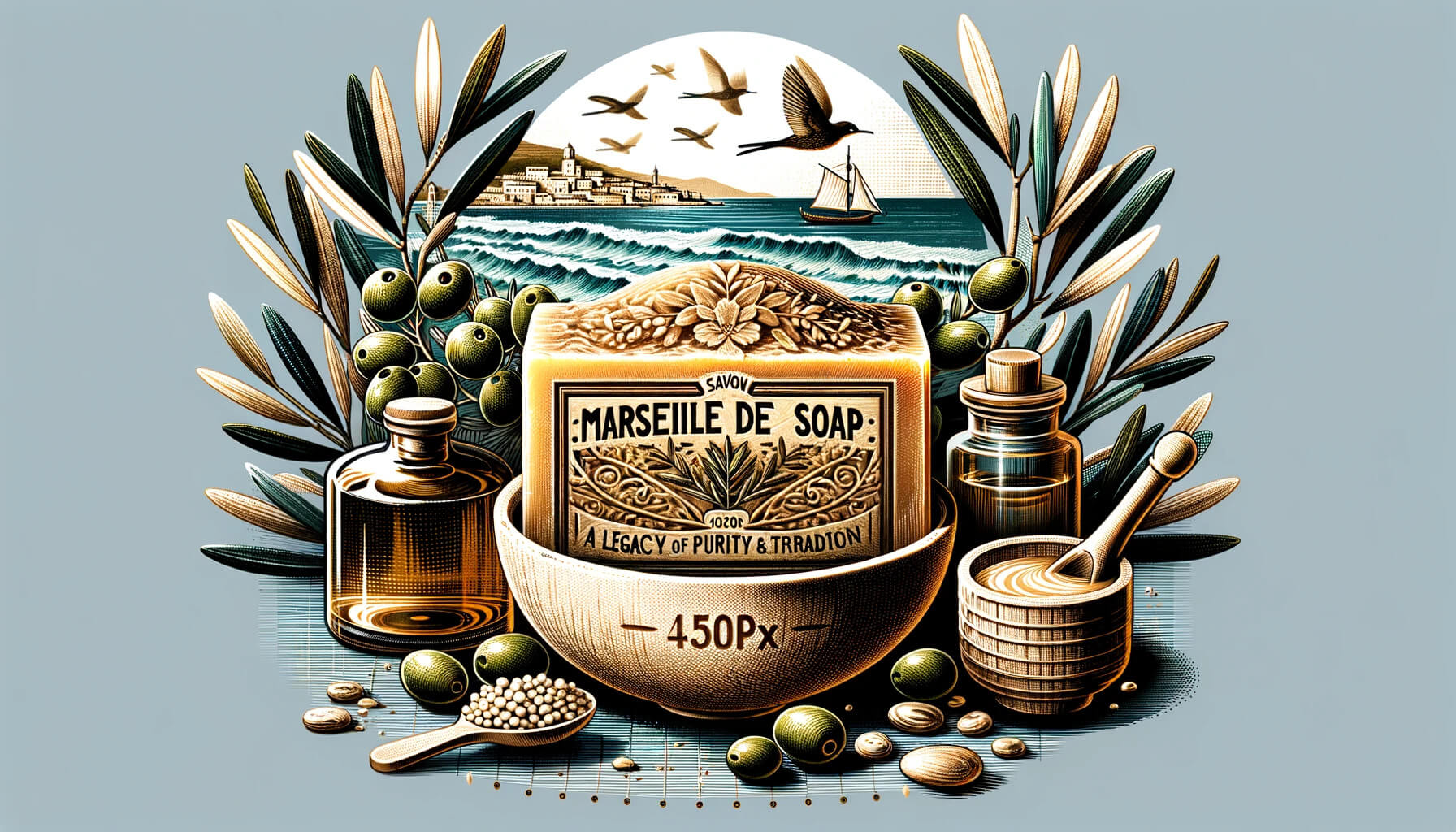Marseille Soap

- Marseille Soap: A Legacy of Purity and Tradition
- The Origins of Marseille Soap
- Traditional Production Methods
- Characteristics and Benefits
- The Emblem of Sustainability
- Preserving Tradition in the Modern World
- Conclusion
Marseille Soap: A Legacy of Purity and Tradition
In the heart of Provence lies the story of a soap that has transcended centuries, known for its purity, natural ingredients, and minimalistic approach to skincare. Marseille soap, or Savon de Marseille, is not just a cleansing product but a symbol of French heritage and artisanal craftsmanship. This blog post delves into the rich history, traditional production methods, and enduring appeal of Marseille soap, a staple in homes and hearts across the globe.
The Origins of Marseille Soap
Marseille soap boasts a legacy dating back to the Middle Ages, with the first documented soapmaker in the region recorded in about the 14th century. Its Mediterranean origins are pivotal, as the abundant local supplies of olive oil, saltwater, and soda ash became the cornerstone ingredients of this iconic soap. By the 17th century, Marseille had established itself as the soap-making capital of the world, with production governed by strict regulations to ensure the soap’s unmatched quality.
Traditional Production Methods
The authenticity of Marseille soap lies in its traditional production method, known as the “Marseille process.” This involves cooking the soap in large cauldrons for several days, a method that allows for the natural glycerin to remain, ensuring the soap’s moisturizing properties are preserved. Only four ingredients are permitted in genuine Marseille soap: natural vegetable oils (predominantly olive oil), water, soda ash (derived from sea salt), and lye. This adherence to simplicity and naturalness is what makes Marseille soap stand out in today’s market flooded with synthetic products.
Characteristics and Benefits
Marseille soap is celebrated for its purity, which makes it suitable for all skin types, including the most sensitive. Its hypoallergenic formula, free from artificial colors, perfumes, and preservatives, ensures that it gently cleanses without stripping the skin of its natural oils. Additionally, its versatility is unparalleled; it can be used for everything from personal hygiene to laundry and household cleaning, making it an eco-friendly alternative to chemical-laden products.
The Emblem of Sustainability
In an era where sustainability is paramount, Marseille soap represents an eco-conscious choice for consumers. Its biodegradable formula and minimal packaging reflect a commitment to environmental stewardship. Furthermore, the traditional craft of making Marseille soap supports local economies and preserves a piece of cultural history, offering a counter-narrative to mass-produced goods.
Preserving Tradition in the Modern World
Today, true Marseille soap is still produced by a handful of soap factories around Marseille, adhering to the ancient methods and formulations. These soapmakers bear the torch of tradition, ensuring that the legacy of Marseille soap continues to lather through the ages. For those seeking a piece of living history, Marseille soap offers not just cleanliness but a connection to a simpler, more natural way of life.
Conclusion
Marseille soap stands as a testament to the enduring value of tradition, purity, and craftsmanship. Its rich history, coupled with its environmental and health benefits, makes it more than just soap; it’s a way of life. As we increasingly seek sustainable and natural solutions in our lives, the timeless appeal of Marseille soap reminds us that sometimes, the best things are the simplest. In embracing Marseille soap, we not only nourish our skin but also pay homage to a craft that has lathered through history, proving that true quality never goes out of style.
